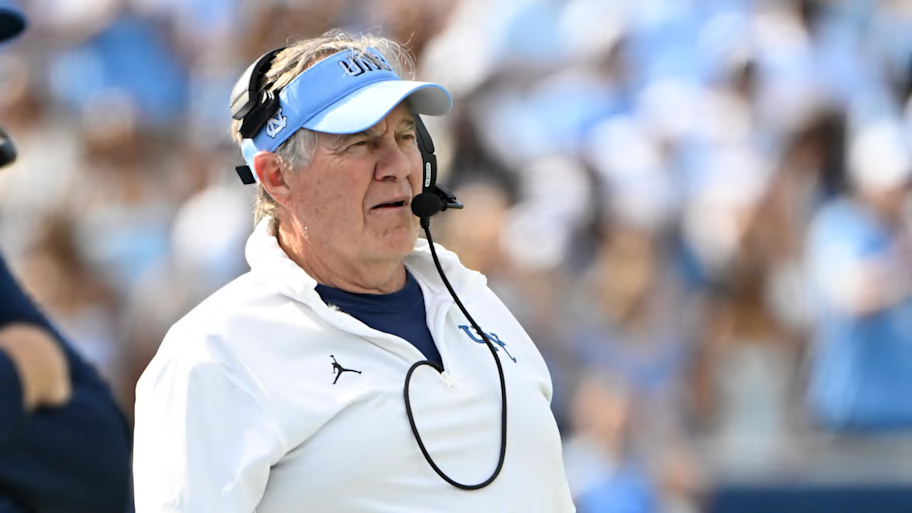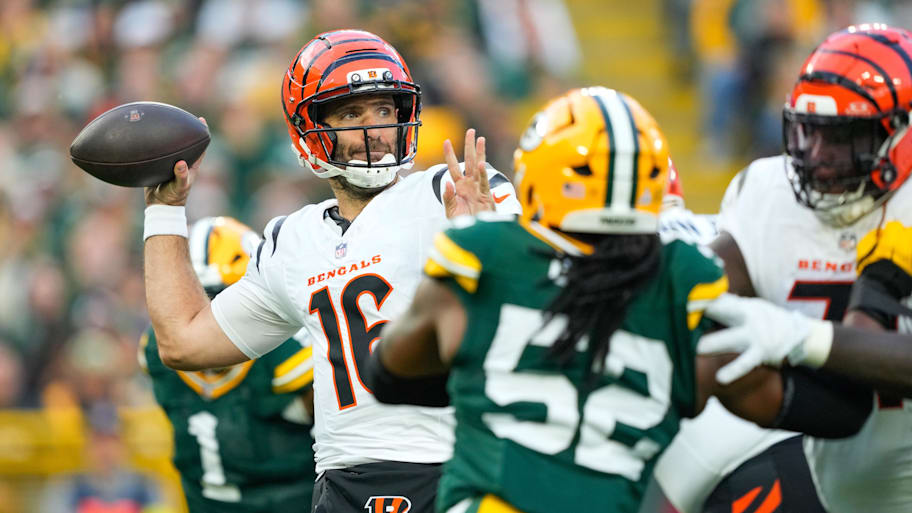
Despite multiple rumors and reports, Bill Belichick is still coaching at North Carolina, and I think I know why. No such luck for James Franklin at Penn State, but let’s lose the word “buyout” in all of that. And the Browns and Cardinals, two franchises not coming to mind as model ones, made interesting moves. Let’s examine.
Belichick not leaving UNC: Follow the money
It was the most celebrated hire in college football last spring when UNC brought in Belichick with a $10 million salary, another $10 million for his staff and $1.5 million for his hand-picked general manager, Michael Lombardi. Unwanted by NFL teams in the hiring cycles for both 2024 and ’25, Belichick had found a new home in Chapel Hill, and excitement about the UNC football program reached new heights.
That was then, this is now. After three blowout losses to Power 4 conference opponents, multiple reports of unhappy players, an undetermined role for Belichick’s 24-year-old girlfriend, canceled docuseries on both HBO and Hulu (and now an assistant coach on leave for recruiting violations), times have been turbulent. There were even reports of Belichick working on an exit package.
But in looking at his contract, I don’t think he’s going anywhere.
Belichick has his own “buyout” to leave, now costing him $1 million were he to voluntarily exit. But with no opportunity to coach in the NFL or, after this experience, college, why would he pay $1 million with nowhere to coach? That’s not happening.
As for an involuntary exit, UNC would have to pay off the remaining guaranteed portion of his contract—two more years at $10 million per year, or $20 million after this year—were he to leave before the end of 2027.
Belichick has a contract much like an NFL player contract: It is technically $50 million over five years, but in reality it is $30 million over three years, with the final two nonguaranteed years in the “we’ll see” category. So after three years, UNC can fire him without any future financial obligation. But that is a long time away.
So despite reports, unless Belichick is fired, which I don’t think will happen, this relationship, for better or worse, will continue. Follow the money.
Buyout? No, just remaining salaries
It is interesting that when college coaches are fired, it seems to trigger the word “buyout” in the parlance of fans and media. We hear no similar phrasing when NFL coaches are fired, yet often the situations are the same.
For example, when James Franklin was dismissed last weekend after 12 seasons as head coach at Penn State, we heard of a “buyout” of over $50 million. But that amount is not really a buyout at all. (Personal note: Franklin was a wide receivers coach with the Packers when I worked there; we maintained a friendship and I spoke to his PSU staff a couple of times.)
The $50 million owed to Franklin represents six-plus years of remaining salary left on his contract, a deal that averages $8.5 million per year. The amounts may be subject to offset, reducing Penn State’s financial obligation if Franklin makes other football coaching income during that time, but there is no “buyout.”
Similarly, if Belichick is fired in the next two years, he’ll receive the remainder of his $30 million guaranteed salary (with nothing guaranteed after that). There is no buyout.
Yes, in certain situations, coaches and universities have negotiated provisions requiring payments less than what is owed on the contract in the event of termination. I suppose they could be called “buyouts,” with predetermined payment schedules.
But for a coach with any leverage—such as Franklin, Jimbo Fisher or even coaches fired from UCLA and Virginia Tech earlier this year—they are paid what they are owed on the contract, usually on the same payment terms had they been still coaching. Just like when NFL coaches are fired. It’s not a buyout; it’s simply what is left on the contract.
Pet peeve rant over—glad to get that off my chest.

Shrewd moves for the Browns
I’ve been hard on the Browns for their disastrous signing of Deshaun Watson and floundering record the past couple of years. But credit where credit is due: They have made some shrewd management decisions this season. During the draft, they acquired a first-round pick from Jacksonville next year to move down only three picks in the first round.
Now, they have made another one.
The ageless Joe Flacco, signed this offseason, served his purpose as a placeholder until the team felt ready to insert rookie Dillon Gabriel. Once that happened, Flacco was expendable.
Meanwhile, after an injury to Joe Burrow, the Bengals were desperate, and the Browns played on that desperation to unload Flacco. While the Bengals certainly didn’t give up much in the trade, getting anything for Flacco at this stage of his career is a win for the Browns, especially since he has now been replaced as the Browns see what they have in Gabriel.
Teams—not just the League—can discipline
Last week, after an unforced fumble before crossing the goal line by Cardinals running back Emari Demercado, head coach Jonathan Gannon approached his player, yelled in his face and swiped his arm. The Cardinals then fined Gannon $100,000.
There are different reactions to what Gannon did; I think the penalty was excessive and have seen coaches do far worse, with no consequences. More interesting to me is that we have a rare instance of discipline coming from not from the league; rather, it was from the team.
We have come to expect that when there is some kind of on-field or off-field incident, the “Conduct Commissioner,” Roger Goodell, will step in with his iron fist and apply discipline. Of course, we all know Goodell to be the “judge, jury and executioner.” But not so here: He left it up to the team to act, and it did.
Sometimes we forget that teams—not just the league—can discipline their players and coaches, too. The Cardinals are a rare team that has just done so.
More NFL From Sports Illustrated
This article was originally published on www.si.com as How Bill Belichick’s ‘Buyout’ Is Similar to NFL Coaching Contracts.







